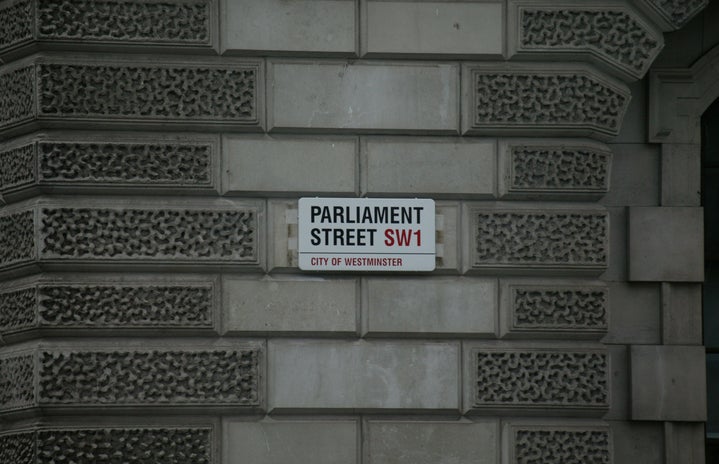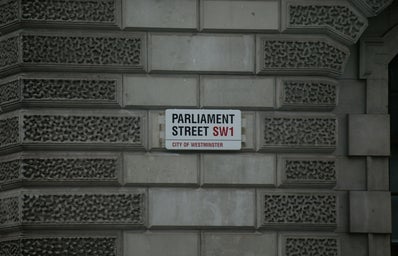Love it or loathe it, politics is a completely unavoidable part of life, especially living here in the UK, where politicians and their various flaws and virtues seem to fuel daily headlines. Even as a politics student, I’ve found the ever-changing carousel of names and faces being hurled at me via my BBC news app a little hard to comprehend. For this reason, I have compiled, in no particular order, a list of 10 women in British politics who I think it is important to know about, regardless of my own opinions on their political positions. Perhaps this will make reading the news a little bit less of a minefield for you, and help us all to feel better connected to, and more importantly, educated about, the various characters running our country from Westminster.
Angela Rayner
Angela Rayner’s most important role, among many, is as Deputy Leader of the Opposition, meaning she serves under Keir Starmer in the Labour Party. Rayner’s rise is a remarkable story, with the politician having left school aged 16 because of pregnancy, and without any qualifications. She eventually began training to make a living as a care worker, before working her way into politics through a role as a trade union representative and later joining the Labour Party. She is well known for her strong and outright opinions towards the Conservative party, powerful representation of the working class, and is very much in the running to be Labour’s first female leader.
Penny Mordaunt
A name you may have seen floating around in the news recently, Mordaunt ran for Conservative party leadership twice, and lost to Liz Truss and Rishi Sunak respectively. She is an incumbent member of Sunak’s cabinet, holding the position of Leader of the House of Commons. Mordaunt has previously served as Minister for Women and Equalities. She was the first woman to hold the post of Minister of State for the Armed Forces under Cameron in 2015. She also served as a Royal Navy Reserve in her youth.
Jennette Arnold
Arnold served as Chair of the London Assembly until 2020, serving in total for five terms. She campaigned extensively for the eradication of Female Genital Mutilation (FGM), and was also named in 2007, as one of Britain’s 50 most influential black women. She campaigned for the Labour Party throughout her terms, alongside lobbying for better educational provisions for children with special needs and disabilities.
Kemi Badenoch
Another member of Rishi Sunak’s new cabinet, Badenoch serves as International Trade Secretary. She was Born in Wimbledon, but spent large parts of her childhood in Lagos, before graduating from the University of Sussex. She resigned from government in July 2022, and stood to replace Boris Johnson in this time, but was beaten by Liz Truss after reaching the fourth round of voting. Badenoch is very much considered to be on the right of the Conservative Party, characterising herself as an ‘anti-woke’ politician.
Laura Kauseenburg
Kauseenburg is a little different to the other women on this list because she is a journalist as opposed to a politician. She held the position of Political editor of BBC news from 2015-2022, and was the first woman to be given the role. She was a constant figure on television during electoral campaigns especially, as well as throughout Brexit negotiations, and acted as an important voice in making the goings on of parliament accessible to the masses. Kauseenburg now works as host of the BBC’s flagship Sunday morning politics show.
Suella Braverman
Braverman is Britain’s Home Secretary, a position she was appointed to under both Truss and Sunak. She recently hit the headlines by resigning on the 19th of October, for a breach of Ministerial Code involving sending important political policy through her personal email address, but was reinstated just six days later when Sunak entered into power. Braverman is on the right of the party and has a controversially hard line approach to migration policy, whilst her most famous statements include saying that the ‘British Empire was a force for good’.
Shabana Mahmood
Mahmood replaced Rayner as National Campaign Coordinator for the Labour party in 2021, having previously served as Shadow Chief Secretary to the Treasury. She was born in Birmingham and studied law at university, meaning she is a fully qualified barrister, as well as an MP. She has recently made headlines for her work on the Energy Bills Rebate, and the Warm Home Discount Scheme, both attempting to make energy an affordable commodity this winter, especially for those within her constituency.
Anneliese Dodds
Dodds is the Labour Party’s Shadow Secretary of State for Women and Equalities, a position she has held since 2021. She is highly educated, holding a degree in PPE from Oxford University, a Masters in Social Policy from Edinburgh University, and a PhD in Government from LSE. Alongside her work on equality, Dodds has strong views on climate change, describing our current state of affairs as a ‘climate emergency,’ and has taken green action within her constituency, as well as campaigning in the commons for a more hard line policy to Britain’s use of fossil fuels.
Daisy Cooper
As Deputy leader of the Liberal Democrats, Daisy Cooper is a name you may have heard in the news, having been hailed by the Guardian as one of 10 new MPs to watch out for in 2020. Cooper notably made a speech on police brutality in September 2020 as part of the George Floyd Protests in St Albans, and also campaigned against the ‘epidemic of male violence’ against women and girls in 2021, in a promotion ran by the Stylist magazine.
Wera Hobhouse
Hobhouse is the Liberal Democrat spokesperson for Justice, Women and Equalities, having served in this position since 2020. She was born and lived in Germany for a part of her life, and cites the fall of the Berlin Wall as a pivotal moment in her childhood. In 2018 Hobhouse pioneered a bill to amend the Sexual Offences Act of 2003, by outlawing up-skirting. This amendment was successfully introduced and is acclaimed as an important development in crimes of voyeurism, especially against women.


